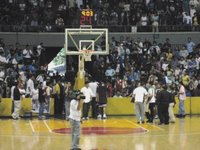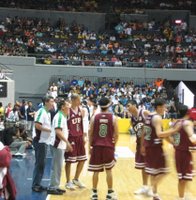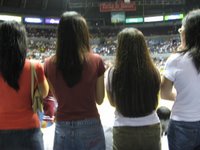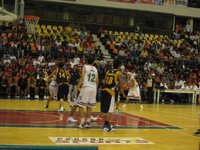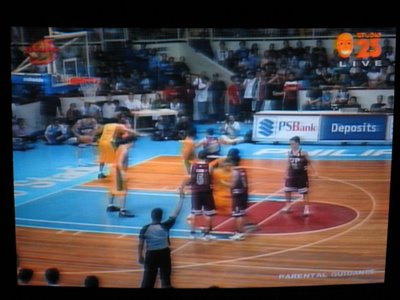 Something interesting from one of the forums that discuss Maroons basketball: After the recent clash of the Katipuneros, while UP students and alums sang the alma mater song, one Atenean asked another why the UP hymn was in Filipino when all other school hymns were in English.
Something interesting from one of the forums that discuss Maroons basketball: After the recent clash of the Katipuneros, while UP students and alums sang the alma mater song, one Atenean asked another why the UP hymn was in Filipino when all other school hymns were in English.One of the UP supporters flanking the two Ateneans—no doubt also piqued that many Ateneans had invaded the seats reserved for UP—snapped: "What's more puzzling is why seven out of eight universities in the UAAP sing their hymns in English!"
Actually, the song was first written in English and titled "UP Beloved." I don't know, though, when it was translated to Filipino.
For the Maroons who only mumble when singing our school hymn, here are the lyrics (as far as The Coach and I know them; please let us know if there are any inaccuracies).
May we all indeed become what we have been called—the hope of the nation:
UP NAMING MAHAL
by Nicanor Abelardo
UP naming mahal, pamantasang hirang.
Ang tinig namin sana’y inyong dinggin.
Malayong lupain amin mang mararating
‘Di rin magbabago ang damdamin.
‘Di rin magbabago ang damdamin.
Luntian at pula, sagisag magpakailanman.
Pagdiwang natin, bulwagan ng dangal
Humayo’t itanghal giting at tapang.
Mabuhay ang pag-asa ng bayan.
Mabuhay ang pag-asa ng bayan.
Thanks to Bitoy and Sir A for pointing out the inaccuracies! :)





